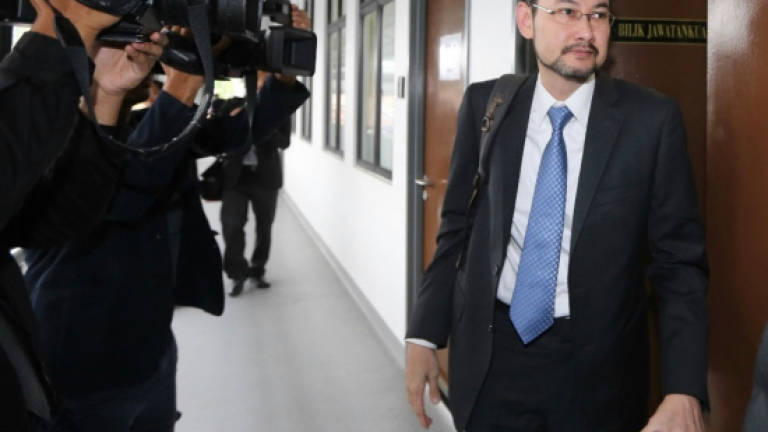PAC: 1MDB board failed in their responsibility (Updated)

KUALA LUMPUR: The Public Accounts Committee today revealed that the 1Malaysia Development Bhd (1MDB)'s board of directors had failed to fulfil their responsibility and protect the interests of the company and its shareholders.
It also said that the directors did not take appropriate action or be proactive in scrutinising the management's activities and cash flow.
In the 1MDB Governance Management Control Report released in the Dewan Rakyat, the PAC said the board needed to adopt more stringent supervisory measures, including to question asset purchase prices and debts owed.
The 106 pages of the long awaited report is complete with details of the proceedings and appendix on 1MDB's financial operation and management.
"The Advisory Board should be abolished, in tandem with Article 117 and the company's memorandum and articles of association.
All references made to the PM should be changed to Finance Ministry, in line with the provisions for other companies belonging to Minister of Finance Incorporated," the PAC stated in the report.
Upon examination of the Auditor-General's final report and 1MDB's explanations, PAC finds that there are constraints and shortcomings on the part of 1MDB's management and the board of directors.
"Specifically, PAC is of the view that the 1MDB's former CEO Shahrol Azral (pix) has to take responsibility for the shortcomings and constraints.
"Therefore, the enforcement agency is urged to investigate Shahrol Azral and the related management," it said.
PAC found that overall, 1MDB's capital allocation structure and financial performance was unsatisfactory.
1MDB has been dependent on debts (bank loans, bonds and sukuk) as its company's capital, in which a part of the debts have been given government guarantees or support letters.
"The debts started at RM5 billion in 2009 and increased to RM42 billion compared with assets worth RM51 billion, at the financial year March 31, 2014, where 1MDB has spent RM2.4 billion to pay the interest of the debts.
"In January this year, 1MDB's debts reached RM50 billion compared with assets worth RM53 billion, where 1MDB has spent RM3.3 billion to pay the interest of the debts between April 1, 2014 and March 31, 2015 (estimates that have not been audited).
"It is clear that the level of debts and interest is too high compared to the cash flow of the company," PAC stated.
All these have led to 1MDB's dependency on refinancing to repay matured debts and taking new debts, among others, to pay for the previous interest of debts.
"After five years of operation, 1MDB faced imbalance of cash flow in November 2014.
"The management and board of directors at that time were depending on Initial Public Offerings (IPO) from fully-owned subsidiaries of 1MDB, Edra Energy Bhd to generate funds, which will be used as debts and interest payments," PAC stated.
However, the IPO could not be implemented because of some internal and external factors.
"Following that, the company's first debts of RM665 million announced in November 2014 caused the erosion of confidence in the company.
"After that, 1MDB could not refinance the debts of RM2 billion, which was almost matured at that time," the report stated.
PAC had thoroughly scrutinised 1MDB's accounts from its inception in 2009, government guaranteed business dealings and decision making methods.
The Auditor-General's audit report on 1MDB however, was not tabled and still classified under the Official Secrets Act (OSA).
Slamming 1MDB's board of directors, PAC said it should have had a more stringent surveillance and questioned prices of asset acquisitions and debt cost.
PAC said the 1MDB management on several occasions failed to adhere to decisions and instructions of the board of directors or even commenced business transactions before specific approvals from the board.
"There were several investments and large financing that were made without detailed valuation including impact research on the company's cash flow.
"Several major decisions were also made through written resolutions, based on discussions in previous meetings," PAC said.
It added that the board of directors were "too reliant on the management" and often accepted explanations of the management, without scrutinising any arising issues.
PAC pointed out that 1MDB should have practised good principles of governance based on guidelines released by Putrajaya Committee on High Performance GLCs through Gree Book: Enhancing Board Effectiveness and Blue Book: Intensifying Performance Management Practices.
"Usage of excessive debt in capital structure cannot be allowed at all, moreover when the company's cash flow is not adequate," it said.
PAC also said the subsidiaries and assets owned by 1MDB such as Tun Razak Exchange, Bandar Malaysia, lands in Air Itam and Pulau Indah, must be surrendered to the Ministry of Finance Incorporated to be regulated and managed more diligently.